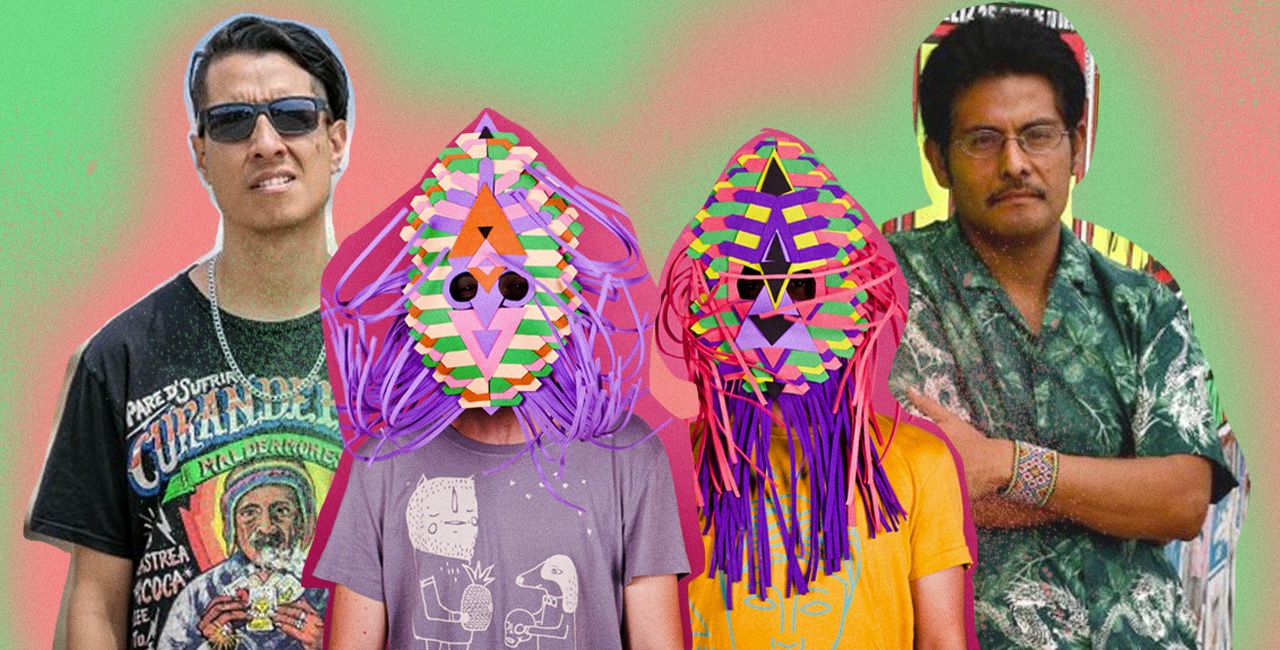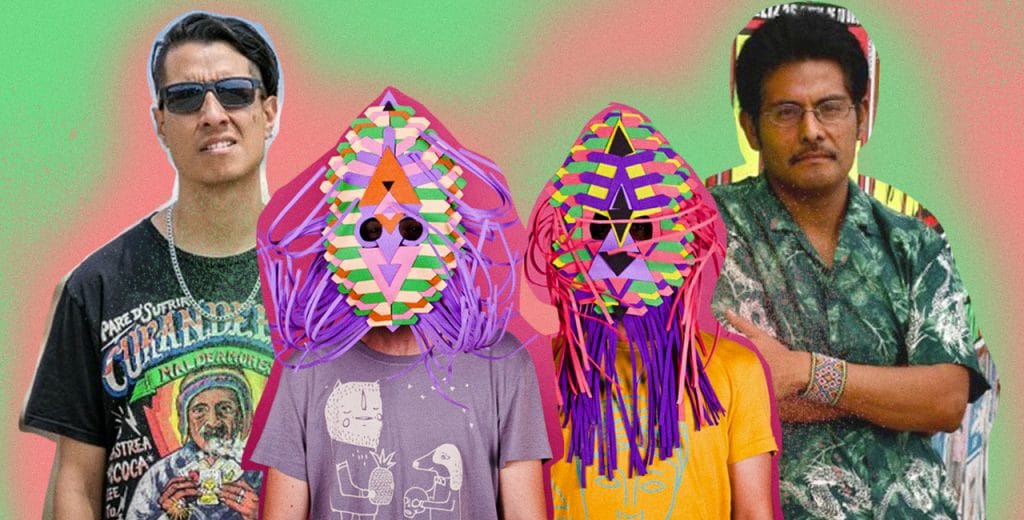The way that bass morphs to serve the local traditions of music scenes from across the world is the subject of Native Instruments’ Tropical Frequencies, a mini-documentary series that (in previous iterations) has already taken looks at the practices of Mexico City’s NAAFI and the “etnotechno” of Colombian pico soundsystems. Its latest chapters tackle the sonido amazónico of Peru. Terror Negro Records and electro cumbia duo Dengue Dengue Dengue serve as guides, giving a primer on the development of chicha, Peru’s psychedelic, unruly cumbia offshoot from its radical roots in 1960s protest music to Lima in 2016, where the genre’s modern updates conjure packed dancefloors.
Eight years ago, a group of producers formed Terror Negro Records, a collective that aimed to put its own spin on cumbia, introducing reggaeton and other beats into the mix in a way that clearly resonates with Lima. Says Terror Negro member Chakruna: “Our parties grew to the point that a thousand to 1,500 were coming. I think that’s good for a genre that continues to be underground.” Tropical Frequencies follows the collective through a typical day in the city: haircut – the series loves watching artists get their hair cut – cevichería, crate digging, Terror Negro founder Deltatron’s show with neo perreo princess Tomasa del Real.
Dengue Dengue Dengue tells their story in another chapter, Poder Verde, which follows them on a journey to meet some of their music’s influencers. The mission is to get to a town in the Amazons that is home to Los Wembler’s de Iquitos. The group has shredded on the psychedelic cumbia circuit since 1968, and helped mold the sound of subsequent generations of Peruvian artists. The ensuing collaboration with DDD underlines the importance of keeping the lines of communication open between musicians to preserve musical heritage. “There are things that are worth saving,” DJ Alfredo Villar comments for the cameras. Essentially, that’s what Native Instruments, who sponsors the Tropical Frequencies series, is attempting: to highlight that ways modern technology can update and pay homage to the sounds that came before us.




